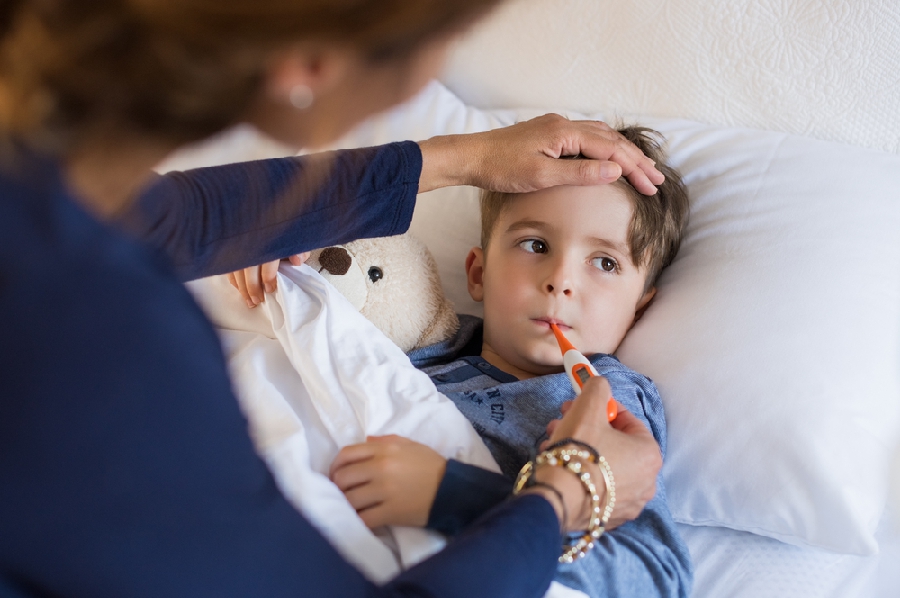- Study Says Most Parents Don’t Use Car Seats In Ride Share Vehicles Like Uber
- This 12-Year-Old Boy Is A Sophomore Aerospace Engineering Major!
- Fire Safety Experts Warn Of Hand Sanitizer Danger After A Mom and Kids Escape House Fire
- Recall Alert: Peaches May Be The Cause Of Salmonella Outbreak, 68 People Ill
- Summer Vacation In The Days Of COVID: Tips To Stay Safe
- How To Safely Grocery Shop During The Coronavirus Pandemic
- Michigan Teen With Vape-Related Illness Undergoes Double Lung Transplant
- Teen Kicks Off Anti-Vaping Campaign From Hospital Bed
- Teenager Receives Life Sentence For Strangling Sister To Death Over A Wi-Fi Password
- Toddler Falls To Death From 11th Deck of Cruise Ship
What Parents Need To Know About The Deadly Adenovirus


It’s that time of year again.
Dealing with all of the sickness that comes with fall is no walk in the park.
It’s almost impossible to avoid, between being out in the general public, and having kids in school.
The cold and flu season can be incredibly frustrating for most of us, and for some, it can even become deadly. Recently, 7 children died as a result of an outbreak of Adenovirus, and 11 more have become sick.
The outbreak took place at a care and rehabilitation center in New Jersey, but it still leads to understandable concern surrounding the spread of the virus.
What is Adenovirus?
Adenovirus is compromised of several very common viruses According to WebMD, they can infect the lining of your eyes, airways and lungs, intestines, urinary tract and nervous system. It is definitely more common in children, they also mention.
The most common adenoviruses include: bronchitis, colds and respiratory infections, pink eye and pneumonia.
While these are mostly quite easily treatable, adenovirus is deadly for those with weakened immune systems, like the children in the facility in New Jersey were.
DOH is confirming 18 cases of adenovirus among pediatric residents at Wanaque Center for Nursing and Rehabilitation. Of these 18 cases, there have unfortunately been 6 deaths of pediatric residents https://t.co/tsEtp8qp3Q
— NJDOH (@NJDeptofHealth) October 23, 2018
Upon initial inspection, the New Jersey Department of Health said that minor hand washing deficiencies were the cause. Because of the way the adenovirus spreads, hand washing is incredibly important.
The germs can be spread if a child infected sneezes or coughs, or if they touch something that someone who has the virus has already touched.
Adults can also get the virus from changing the diaper of a child who has it and then not properly washing their hands afterwards.
The Department of Health is currently conducting an investigation into the outbreak to figure out where it could have possibly started.
Unfortunately, it has already led to deaths in several kids with compromised immune systems.
We take this very seriously. Multiple teams on site inspecting/directly working with staff to ensure proper infection control protocols.
Facility is not taking new patients until the outbreak ends.
— Shereef Elnahal, MD (@ShereefElnahal) October 23, 2018
The strain that is going through the Wanaque Center for Nursing and Rehabilitation in New Jersey is referred to as Adenovirus 7, which is often found in communal living spaces and can be more severe. Because the children in this center already have weak immune systems, even something that could be easily cured in a healthier child could be very, very dangerous.
Until they can find a cause, the center is not taking in any new patients because these viruses are so common, they are almost unavoidable.
Parents, please make sure that you’re washing your hands frequently, cleaning all counter tops and communal surfaces, and teach your children to cover their mouths when they cough or sneeze.









0 comments